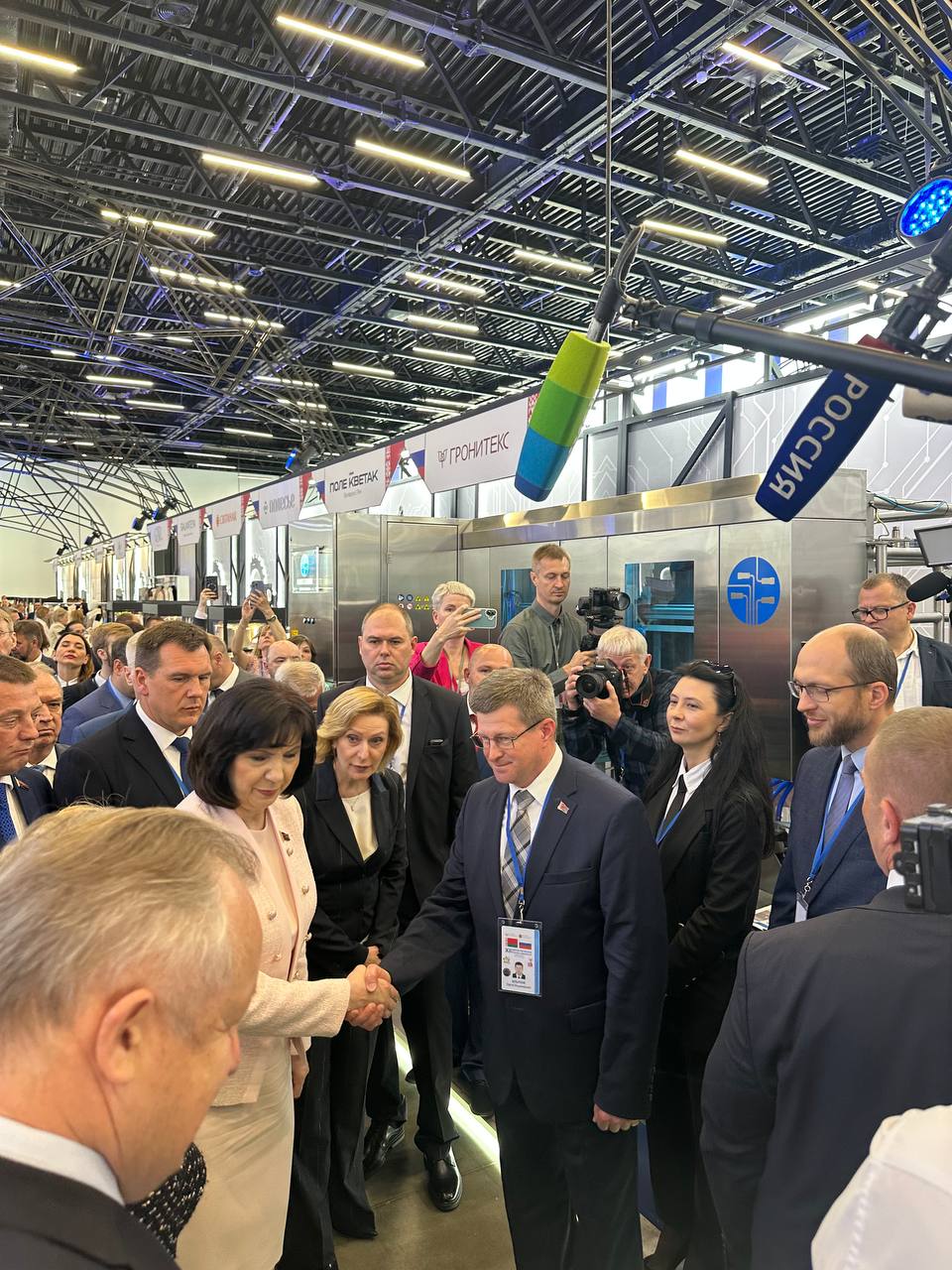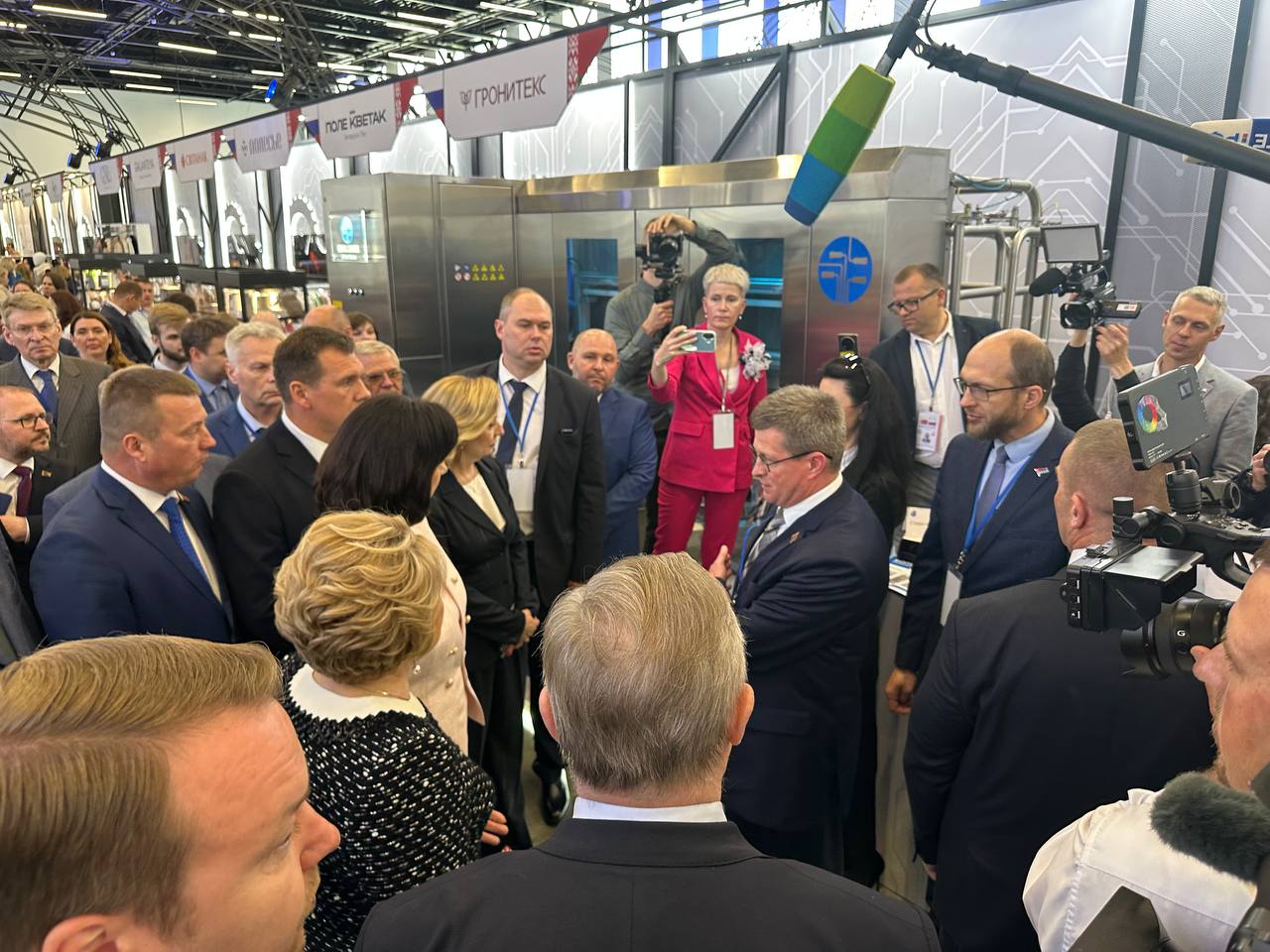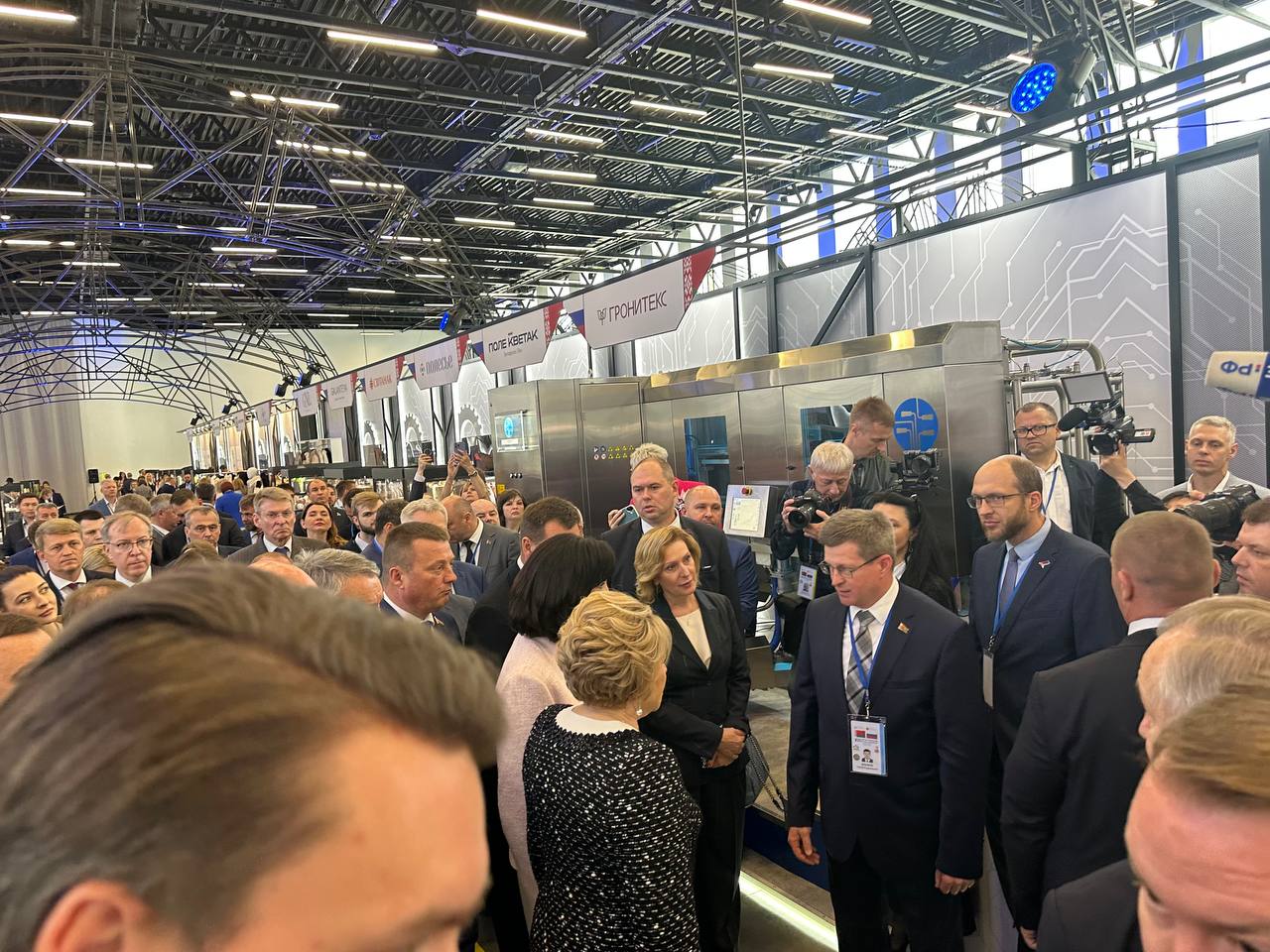
|
|
|
|
|
| |||
|
||||||
|
|
|
Sergey Shlychkov presented a collective exhibition within the framework of the XII Forum of Regions of Russia and Belarus 27.06.2025
Today, the exhibition was toured by the chairmen of the delegations of Belarus and Russia, headed by the Chairperson of the Council of the Republic of the National Assembly of the Republic of Belarus N.N. Kochanova and the Chairperson of the Federation Council of the Federal Assembly of the Russian Federation V.I. Matvienko. Chairman of the State Committee for Science and Technology S.V. Shlychkov presented a collective exposition within the framework of the XII Forum of Regions of Russia and Belarus. 106 scientific and technical developments are presented at the stands in the form of full-scale samples, models, multimedia and advertising presentations in the following areas: new materials, mechanical engineering and instrument making, agro-industrial complex and food, healthcare, biotechnology and ecology, energy saving. Organizations of the National Academy of Sciences of Belarus, institutions of the Ministry of Education and residents of Minsk City Technopark LLC demonstrate their achievements. Among the most interesting developments is a space system for radiometric monitoring of near-Earth space based on a small spacecraft and specialized ground-based facilities. It provides radiotomographic data on low— and high-orbit monitoring of the Earth's ionosphere, magnetometric data on near-Earth space monitoring, processing of the received initial data and creation of models based on them that reflect the state of near-Earth space taking into account ionospheric and magnetospheric processes. Digital models increase the reliability of assessing the operational situation and the effectiveness of decision-making by personnel at hazardous industrial facilities and nuclear power plants. There are currently no analogues of this system in Belarus. In Russia, the heliogeophysical devices "Ionosfera-M" No. 1 and No. 2 operate. The exhibition also features a milking robotic complex. By reducing the influence of the human factor on milking technology, it is possible to maintain the health of cattle and extend their productive longevity. Modern technologies make it possible to adjust milking modes, feeding parameters, automatically determine the state of the animals' heat and identify signs of subclinical mastitis and other diseases directly from the operator's workplace, which simplifies the operation of the equipment and improves the quality of the produced raw materials. Monitoring and control of all processes ensure stable milk production that meets the specified parameters. Automation of the raw milk production process allows to reduce its cost and improve its quality, which opens up new export prospects and helps to save foreign currency when using domestic equipment instead of foreign analogues. In addition, a prototype of the kinetic facade model was presented. The model allows you to evaluate the architectural concept, possible visual effects and options for managing the microclimate of such buildings. The project is both an exterior and interior architectural and design solution. It allows you to implement solar panels to save electricity when operating the facade, there is air conditioning in the premises in the summer. Unlike existing solutions on the Russian market, the kinetic facade offers dynamic adaptation to environmental conditions, which makes it unique. The prototype offers a more intuitive and environmentally friendly adaptation to the external environment compared to known projects. The exhibition also presents the technology of chemical-mechanical polishing of silicon carbide. Plates of single-crystal silicon carbide are used in industrial equipment components, protective armor and semiconductor substrates for the automotive, aerospace and energy industries. They have high hardness, wear resistance, thermal conductivity and low weight, and are not inferior to foreign analogues. Dry starters of probiotic microorganisms are also presented. Specially selected combinations of probiotic strains of lactic acid microorganisms and bifidobacteria were studied in a complex of biotechnological experiments in the ISS conditions as part of the joint Russian-Belarusian target work "Proxibiotic". Its main goal is to create a complex fermented milk product to maintain human microbiota in space flight conditions. Based on the results of the studies, unique combinations were developed based on terrestrial cultures, which became the basis for starters of probiotic microorganisms. These starters are used to prepare fermented milk products at home (yogurt, cottage cheese, bioproduct, bioyogurt, sour milk). For each type of starter, a unique composition of starter cultures from the republican collection of strains, recognized as the national heritage of Belarus, was selected. Due to the natural composition of the starter itself, the finished product based on it does not contain stabilizers, thickeners, dyes, flavors and added sugars.
|
|||
|










